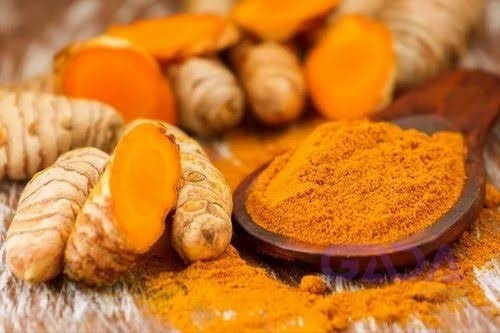Aggiornamenti recenti
-
It's Friday Evening Online Market.
Wake up
Collect your money.
Legit vendors only should advertise their products under my comment section. Customers are online.It's Friday Evening Online Market. Wake up Collect your money. Legit vendors only should advertise their products under my comment section. Customers are online.2 Commenti 0 condivisioni 144 Views 0 AnteprimaEffettua l'accesso per mettere mi piace, condividere e commentare! -
If you have these shoes, post pictures with their prices under the comment section. I'm going for the best price.If you have these shoes, post pictures with their prices under the comment section. I'm going for the best price.0 Commenti 0 condivisioni 158 Views 0 Anteprima
-
MANGO
Mangoes are not only delicious but also packed with nutrients and health benefits. Here are some key health benefits of mango:
1. Rich in Vitamins and Minerals:
High in Vitamin C, which boosts immunity and promotes healthy skin.
Good source of Vitamin A, important for vision and immune function.
Contains Vitamin E, K, and several B vitamins.
2. Supports Digestion:
Contains enzymes like amylases that help break down carbohydrates.
High fiber content supports healthy digestion and prevents constipation.
3. Boosts Immunity:
The combination of Vitamin C, A, and antioxidants helps strengthen the immune system.
4. Promotes Eye Health:
Vitamin A and antioxidants like lutein and zeaxanthin protect the eyes and may reduce the risk of macular degeneration.
5. Good for Skin and Hair:
Vitamin C helps in collagen production, which keeps skin firm and youthful.
Vitamin A promotes hair health.
6. May Help Control Cholesterol:
High in fiber and antioxidants, which may help lower LDL (bad) cholesterol.
7. May Aid in Weight Management:
Moderately low in calories and can be a healthy, satisfying snack when eaten in moderation.
8. May Reduce Risk of Certain Cancers:
Polyphenols in mangoes have antioxidant properties that may help reduce oxidative stress, linked to cancer risk.MANGO Mangoes are not only delicious but also packed with nutrients and health benefits. Here are some key health benefits of mango: 1. Rich in Vitamins and Minerals: High in Vitamin C, which boosts immunity and promotes healthy skin. Good source of Vitamin A, important for vision and immune function. Contains Vitamin E, K, and several B vitamins. 2. Supports Digestion: Contains enzymes like amylases that help break down carbohydrates. High fiber content supports healthy digestion and prevents constipation. 3. Boosts Immunity: The combination of Vitamin C, A, and antioxidants helps strengthen the immune system. 4. Promotes Eye Health: Vitamin A and antioxidants like lutein and zeaxanthin protect the eyes and may reduce the risk of macular degeneration. 5. Good for Skin and Hair: Vitamin C helps in collagen production, which keeps skin firm and youthful. Vitamin A promotes hair health. 6. May Help Control Cholesterol: High in fiber and antioxidants, which may help lower LDL (bad) cholesterol. 7. May Aid in Weight Management: Moderately low in calories and can be a healthy, satisfying snack when eaten in moderation. 8. May Reduce Risk of Certain Cancers: Polyphenols in mangoes have antioxidant properties that may help reduce oxidative stress, linked to cancer risk.0 Commenti 0 condivisioni 157 Views 0 Anteprima1
-
MICRO HEALTH TIPS
Ever feel exhausted after a full night’s sleep? It’s not just in your head—your body might be trying to tell you something deeper.
2.You do not need a gym membership to start transforming your health. It starts with how you breathe.
3.Drink water before coffee. It balances your cortisol levels and wakes your organs gently.
4.Take your shoes off and stand on grass. It's called ‘earthing’ and it's proven to reduce stress.
Like, comments and share.
MICRO HEALTH TIPS Ever feel exhausted after a full night’s sleep? It’s not just in your head—your body might be trying to tell you something deeper. 2.You do not need a gym membership to start transforming your health. It starts with how you breathe. 3.Drink water before coffee. It balances your cortisol levels and wakes your organs gently. 4.Take your shoes off and stand on grass. It's called ‘earthing’ and it's proven to reduce stress. Like, comments and share.0 Commenti 0 condivisioni 149 Views 0 Anteprima -
HEALTH BENEFITS OF TURMERIC
Turmeric, scientifically known as Curcuma longa, is a vibrant yellow spice derived from the root of a plant in the ginger family. Native to South Asia, it has been a staple in both culinary and medicinal practices for centuries. The primary active compound in turmeric is curcumin, which is responsible for many of its health benefits.
HEALTH BENEFITS OF TURMERIC
1. Anti-Inflammatory and Antioxidant Properties:
Curcumin in turmeric acts as a potent anti-inflammatory agent, helping to reduce inflammation in the body. This property is particularly beneficial in managing conditions like arthritis and other inflammatory disorders. Additionally, curcumin's antioxidant effects help neutralize free radicals, protecting cells from oxidative stress and reducing the risk of chronic diseases.
2. Joint Health:
Turmeric has been shown to alleviate symptoms of osteoarthritis and rheumatoid arthritis. Studies indicate that curcumin can reduce joint pain and stiffness, providing relief comparable to conventional anti-inflammatory medications.
3. Digestive Aid:
Turmeric stimulates bile production, which aids in fat digestion. It has been used traditionally to treat digestive issues such as indigestion and bloating. Moreover, its anti-inflammatory properties can help manage conditions like irritable bowel syndrome (IBS) and inflammatory bowel disease (IBD).
4. Skin Health:
Topical application of turmeric can improve skin conditions like acne, eczema, and psoriasis due to its anti-inflammatory and antimicrobial properties. It also supports wound healing by promoting tissue regeneration and collagen deposition.
5. Brain Function and Mood Enhancement:
Curcumin can increase levels of brain-derived neurotrophic factor (BDNF), a hormone linked to improved brain function and a lower risk of brain diseases. It may also alleviate symptoms of depression by boosting neurotransmitters like serotonin and dopamine.
6. Heart Health:
The antioxidant and anti-inflammatory properties of turmeric contribute to heart health by improving endothelial function, reducing LDL cholesterol levels, and preventing the buildup of arterial plaque, thereby lowering the risk of heart disease.
7. Cancer Prevention:
Curcumin has shown potential in inhibiting the growth and spread of cancer cells. While more research is needed, its ability to interfere with molecular pathways involved in cancer development makes it a promising area of study.
8. Immune System Support:
Turmeric's antibacterial, antiviral, and antifungal properties enhance the immune system's ability to fight infections. Regular consumption can help reduce the frequency and severity of common illnesses like the cold and flu.
CONSIDERATIONS AND RECOMMENDATIONS
Bioavailability: Curcumin has low bioavailability, meaning it's not easily absorbed by the body. Consuming turmeric with black pepper, which contains piperine, can enhance absorption by up to 2000%.
Supplementation: While turmeric supplements are available, it's generally recommended to incorporate turmeric into your diet through food sources to avoid potential side effects associated with high-dose supplements.
Interactions: High doses of curcumin may interact with certain medications, including blood thinners and chemotherapy drugs. It's important to consult with a healthcare provider before starting turmeric supplements, especially if you're on medication.
HOW TO INCORPORATE TURMERIC INTO YOUR DIET
Golden Milk: Mix turmeric with warm milk (or plant-based alternatives) and a pinch of black pepper for a soothing drink.
Smoothies: Add a teaspoon of turmeric powder to your favorite smoothie for an anti-inflammatory boost.
Cooking: Use turmeric in curries, soups, and rice dishes to enhance flavor and color.
Teas: Brew turmeric tea by steeping fresh turmeric root or turmeric powder in hot water.
HEALTH BENEFITS OF TURMERIC Turmeric, scientifically known as Curcuma longa, is a vibrant yellow spice derived from the root of a plant in the ginger family. Native to South Asia, it has been a staple in both culinary and medicinal practices for centuries. The primary active compound in turmeric is curcumin, which is responsible for many of its health benefits. 🌿 HEALTH BENEFITS OF TURMERIC 1. Anti-Inflammatory and Antioxidant Properties: Curcumin in turmeric acts as a potent anti-inflammatory agent, helping to reduce inflammation in the body. This property is particularly beneficial in managing conditions like arthritis and other inflammatory disorders. Additionally, curcumin's antioxidant effects help neutralize free radicals, protecting cells from oxidative stress and reducing the risk of chronic diseases. 2. Joint Health: Turmeric has been shown to alleviate symptoms of osteoarthritis and rheumatoid arthritis. Studies indicate that curcumin can reduce joint pain and stiffness, providing relief comparable to conventional anti-inflammatory medications. 3. Digestive Aid: Turmeric stimulates bile production, which aids in fat digestion. It has been used traditionally to treat digestive issues such as indigestion and bloating. Moreover, its anti-inflammatory properties can help manage conditions like irritable bowel syndrome (IBS) and inflammatory bowel disease (IBD). 4. Skin Health: Topical application of turmeric can improve skin conditions like acne, eczema, and psoriasis due to its anti-inflammatory and antimicrobial properties. It also supports wound healing by promoting tissue regeneration and collagen deposition. 5. Brain Function and Mood Enhancement: Curcumin can increase levels of brain-derived neurotrophic factor (BDNF), a hormone linked to improved brain function and a lower risk of brain diseases. It may also alleviate symptoms of depression by boosting neurotransmitters like serotonin and dopamine. 6. Heart Health: The antioxidant and anti-inflammatory properties of turmeric contribute to heart health by improving endothelial function, reducing LDL cholesterol levels, and preventing the buildup of arterial plaque, thereby lowering the risk of heart disease. 7. Cancer Prevention: Curcumin has shown potential in inhibiting the growth and spread of cancer cells. While more research is needed, its ability to interfere with molecular pathways involved in cancer development makes it a promising area of study. 8. Immune System Support: Turmeric's antibacterial, antiviral, and antifungal properties enhance the immune system's ability to fight infections. Regular consumption can help reduce the frequency and severity of common illnesses like the cold and flu. ⚠️ CONSIDERATIONS AND RECOMMENDATIONS Bioavailability: Curcumin has low bioavailability, meaning it's not easily absorbed by the body. Consuming turmeric with black pepper, which contains piperine, can enhance absorption by up to 2000%. Supplementation: While turmeric supplements are available, it's generally recommended to incorporate turmeric into your diet through food sources to avoid potential side effects associated with high-dose supplements. Interactions: High doses of curcumin may interact with certain medications, including blood thinners and chemotherapy drugs. It's important to consult with a healthcare provider before starting turmeric supplements, especially if you're on medication. 🍽️ HOW TO INCORPORATE TURMERIC INTO YOUR DIET Golden Milk: Mix turmeric with warm milk (or plant-based alternatives) and a pinch of black pepper for a soothing drink. Smoothies: Add a teaspoon of turmeric powder to your favorite smoothie for an anti-inflammatory boost. Cooking: Use turmeric in curries, soups, and rice dishes to enhance flavor and color. Teas: Brew turmeric tea by steeping fresh turmeric root or turmeric powder in hot water.0 Commenti 0 condivisioni 270 Views 0 Anteprima -
0 Commenti 0 condivisioni 261 Views 1 0 Anteprima1

-
0 Commenti 0 condivisioni 372 Views 0 Anteprima2

-
🤣🤣🤣🤣🤣🤣0 Commenti 0 condivisioni 269 Views 0 Anteprima
-
Carefully read thisCarefully read this👇0 Commenti 0 condivisioni 251 Views 0 Anteprima
-
In antiquity, women who had anxiety, mood swings and depression were sent by their husbands to the doctor, who diagnosed them with a disease called ′′ hysteria ". Their treatment was based on a ′′ pelvic massage ′′ with the purpose of achieving hysterical paroxysm, now known as orgasm.
There were so many women who began to attend consultations to have their ′′ treatment for hysteria ′′ that doctors at the end of the workday were exhausted and their hands were shaky; that's why they decided to invent a useful device that produced rhythmic vibrations and that hysterical paroxysm was achieved easier and faster in the patient without the need for the common manual massage: this is the origin of the vibrator. At that time it was seen as a healing artifact, even the wealthiest women had them in their homes for when they felt ′′ bouts of hysteria ".
For more, read my friend Rachel Maines' book on this.
Copied.In antiquity, women who had anxiety, mood swings and depression were sent by their husbands to the doctor, who diagnosed them with a disease called ′′ hysteria ". Their treatment was based on a ′′ pelvic massage ′′ with the purpose of achieving hysterical paroxysm, now known as orgasm. There were so many women who began to attend consultations to have their ′′ treatment for hysteria ′′ that doctors at the end of the workday were exhausted and their hands were shaky; that's why they decided to invent a useful device that produced rhythmic vibrations and that hysterical paroxysm was achieved easier and faster in the patient without the need for the common manual massage: this is the origin of the vibrator. At that time it was seen as a healing artifact, even the wealthiest women had them in their homes for when they felt ′′ bouts of hysteria ". For more, read my friend Rachel Maines' book on this. Copied.1 Commenti 0 condivisioni 337 Views 0 Anteprima -
1 Commenti 0 condivisioni 291 Views 0 Anteprima
-
0 Commenti 0 condivisioni 272 Views 0 Anteprima1

-
0 Commenti 0 condivisioni 233 Views 0 Anteprima
Altre storie






























